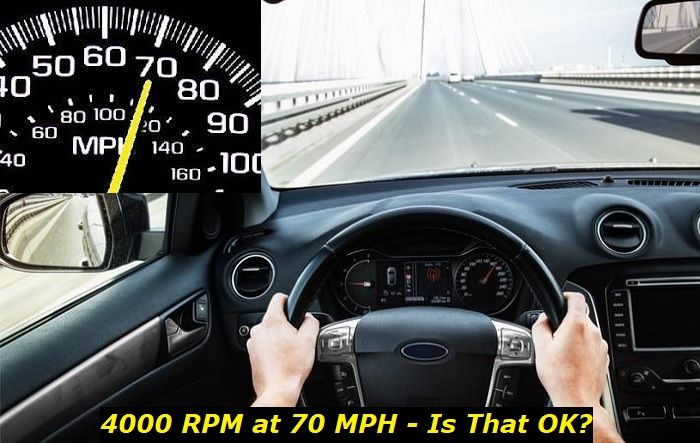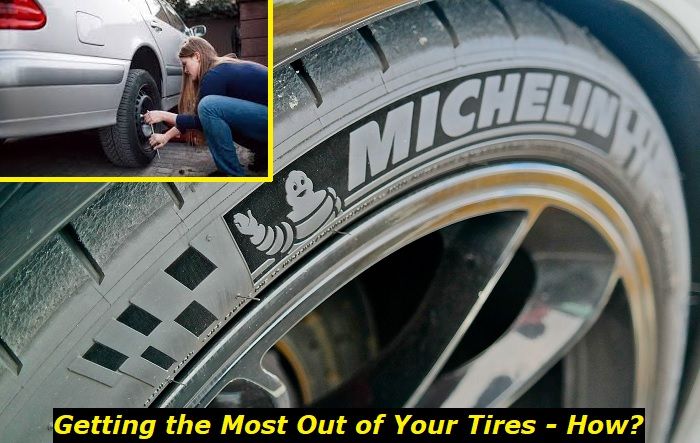When you repair, maintain, or adjust some systems in your engine, you need to know what you are doing. Otherwise, this may end up being a huge and very expensive problem. A lot of mistakes happen just because car owners don't know what exactly they should do in a certain situation.
In this article, I will recap several topics that my team and I have written about in this blog and they will all cover mistakes when dealing with the engine in your car. I will give you links for further investigation and outline some highlights so that you can percept the information easily.
.jpg)
Engine repair mistakes
Engine repair is a pretty complicated task. And you should never approach it unless you have proper knowledge and understanding of what you are doing.
For example, I know several cases when people tried rethreading spark plug holes and eventually killed their engines. One of my acquaintances found an internet guide on removing helicoil plugs and broke the engine.
Also, there are a million fooling tips like hitting the alternator with a hammer if it malfunctions or adjusting the cam chain (or belt) tensioner on your own when it's loose. I assure you, these guides are a complete scam and are written by authors who never took a screwdriver in their hands.
I even once read a guide on replacing the main bearing in an engine without removing the crankshaft and it was so wrong that I almost cried.
If you are about to replace injectors or work with the glow plugs, please make sure you know what you are doing before you actually take the wrench. Because after the incorrectly done job, you will need to find guides on how to get the engine back to life. Unfortunately, they are often written by the same authors and have zero credibility.
Engine repair mistakes highlights:
- Level of importance:extremely important
- When done:DIY repairs or diagnostics
- Cost of mistake:$250 - $4,000
- How to avoid:professional inspections, getting help from mechanics
- Consequences:broken engine, need for engine replacement
- DIY solutions:not many
Mistakes when driving your car
Some silly mistakes may often lead to very serious problems. For example, if you turn the ignition key and crank your starter when the engine is already running, you may kill the starter motor and the flywheel gear.
Also, I've written an article explaining why applying deodorant on squeaky belts is a bad idea. It just stops doing its job so it won't squeak. But your equipment will not be working in the vehicle.
A lot of people keep driving when they have problems with their engines - this is yet another mistake to consider. Or they may accidentally use the wrong type of gas in their vehicle. It's not that bad if it's just about octane number. But things become way more dangerous when you put gas into a diesel car or vice versa.
Also, a lot of mistakes happen when trying to repair or inspect the engine on your own. One example is the wrong cranking of the engine by hand when it's broken or stuck.
Engine use mistakes highlights:
- Level of importance:important
- When done:just driving, DIY repairs, DIY maintenance
- Cost of mistake:$200 - $4,000
- How to avoid:read driver's manual, learn how to drive safely, use professional repair andmaintenance
- Consequences:fatal engine issues, expensive breakdowns
- DIY solutions:sometimes possible
Mistakes in using various systems
Every modern car has a lot of various systems that help the driver to stay safe and avoid killing the equipment. Also, several systems work to please the emission control bodies and we traditionally hate them but have to put up with them.
The majority of mistakes are with the start-stop system. Car owners are surprised to see their RPM needle at zero when they stop at traffic lights. Especially if the car is new and it's their first vehicle with the start-stop feature. Just remember about it and get used or turn it off if you feel like that.
Then comes the engine displacement. A lot of people are sure that more liters is always good. But modern engines work with turbochargers, they are pretty efficient, and the majority of car owners just don't need large engines. They may easily live with a 3-cylinder paying way less money when buying and maintaining their cars. Yes, these engines don't last that long, you should also know this.
Also, a lot of people have zero understanding of several new features their cars may have like running after they turn off the ignition. Also, they just don't know what certain abbreviations and words mean in their cars and this should be fixed as soon as possible.
Engine systems use highlights:
- Level of importance:important
- When done:when driving or maintaining the vehicle
- Cost of mistake:$100 - $300
- How to avoid:read driver's manual, ask your dealership for guidelines
- Consequences:wrong use ofimportantfunctions, minor engine damage
- DIY solutions:possible
Engine use issues
If your car feels like it's dragging or pulling you back, there is a chance that you are now misusing the vehicle. You need to stop and check everything starting with the parking brake and finishing with certain warning lights on your dash.
When you already have issues with the engine, DIY diagnostics may actually hurt. If you suspect wrong things happening with the powerplant, have it inspected by a professional as soon as possible.
A lot of engine use mistakes occur just because you don't know how to use the engine correctly. If it shows any anomalies, it's a good reason to have it checked right now.
Engine use issues highlights:
- Level of importance:medium
- When done:driving the vehicle
- Cost of mistake:$250 - $3,500
- How to avoid:read driver's manual, learn more about the engine you have
- Consequences:inefficient driving, fatal engine issues
- DIY solutions:possible
Engine use tips
If you misuse your engine, you just don't get the proper power and efficiency out of it. It's important to use the engine properly at all times. And it's not only about the best RPM.
You need to find a balance between fast acceleration and optimal engine work. Aggressive driving is always bad unless your engine is prepared for sports. Also, observing your RPM when accelerating is not usually good because every engine is different and requires various RPM limitations for better longevity and reliability.
Also, it's important to understand your optimal behavior after you repair the engine. Even if it's just some minor repair like throttle replacement, there are some tips to remember about.
Of course, there are even smaller things. Like the time you should be pressing the engine start button. Although it's not that important, people who just start driving a vehicle with the button instead of the key may be confused about that.
Engine use tips highlights:
- Level of importance:important
- When done:driving the vehicle, maintaining the engine
- Cost of mistake:$250 - $350
- How to avoid:read advice, read driver's manual
- Consequences:bad efficiency, shorter engine lifespan, engine problems
- DIY solutions:possible
About the authors
The CarAraC research team is composed of seasoned auto mechanics and automotive industry professionals, including individuals with advanced degrees and certifications in their field. Our team members boast prestigious credentials, reflecting their extensive knowledge and skills. These qualifications include: IMI: Institute of the Motor Industry, ASE-Certified Master Automobile Technicians; Coventry University, Graduate of MA in Automotive Journalism; Politecnico di Torino, Italy, MS Automotive Engineering; Ss. Cyril and Methodius University in Skopje, Mechanical University in Skopje; TOC Automotive College; DHA Suffa University, Department of Mechanical Engineering






Add comment